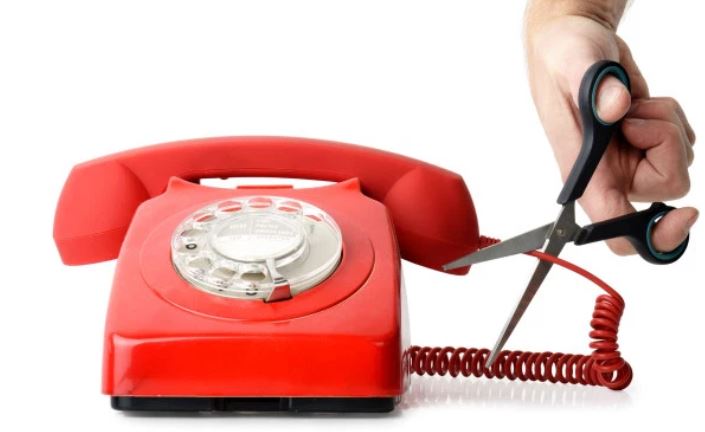22. Grow food on your balcony or in an urban garden
Previously we dealt with how to do the shopping, listing some tips and precautions to save money. What if, besides saving money, we try to cultivate some products in our house? There are lucky people who already have a garden, or a large space that will allow them to plant trees or plants more imposing than those who have only a balcony, but let’s see which plants we can accommodate in our homes even if we have not much space. In addition to this we will also see later how we can have a small vegetable garden without owning a real garden.
Among the items we buy the most in the supermarket there are vegetables, fruits and vegetables, and sometimes also spices and aromatic plants, which we use to flavour our foods. Cultivating some of these products we would have a substantial savings on our expenses. It is not necessary to have a vegetable garden, it is enough to get some pots with Earth and a place them in the sun, because any plant, fruit or vegetable we decide to cultivate needs a lot of light. The soil can be made by mixing ground and animal manure or by a good compost already fertilized, purchased in the shopping malls dedicated to this hobby. After we have prepared the Earth in the pots we begin with the sowing, that can be done by transplanting an acquired sapling, or placing the seeds in the ground, waiting for the seedling to be born from the beginning. As for the seeds or the plants to buy remember that you have little space, so you should buy vegetables and fruits that are not too bulky such as tomatoes, mint, basil, rosemary, peas, parsley, valerian, broccoli and chicory. After having checked that everything is ready you will only need water to watering your plants (you could use rainwater so as not to use the house one, picking it up in basins) and lots of patience.
Having a garden at home, whether it is large or small, give a really important hand to our savings plan, even if the plants we cultivate are few, they however are products that we will not buy at the supermarket, where the fruit and vegetables have outrageous prices per kilo. The exact saving depends on what products you are used to buy and from which you decide to cultivate at home, but no matter what this will bring several pennies in your pockets.
Certainly also in this case we have to do some expenses, but they are really insignificant, the seeds for planting cost very little (€ 1-2), the land (the price of sacks starts from €2), and then the water, which as we have already said must not necessarily be consumed because you can collect that rainwater to water your plants.
Having a plot of land would be even more convenient, but if we live in a city we have to settle with the pots that we have on the balcony or, if you have the possibility, to cultivate in the gardens that some cities make available to the inhabitants.
In order to become part of an urban garden you have to contact your municipality. The urban garden is a green space belonging to the municipality and is made available to citizens to cultivate fruits, vegetables and flowers. This initiative is useful to the society and to the economy of the citizens, a small space of 20 meters is able to produce fruit and vegetables for the support of a person for a period of one year. This really saves a lot both to a single person but also to a family of more than two people. These urban gardens are rising sharply because they also give to citizens who cultivate them a way to live a healthier life and to be in contact with nature. Usually, in fact, they are spaces that are outside the city walls, in the suburbs, where smog levels are reduced just to foster a healthier lifestyle. To be part of it you have to face the expense of a small annual fee, decided by your municipality. It is an annual fee but it will save quite a lot of money.
Finally, who is in constant contact with nature lives better, relaxes more. Living near a green area or visiting a lawn, garden or any natural space makes people happier. Moreover, it is to be said that material contact with nature, so gardening, take care of your plants, gives you satisfaction and harmony. Today our life is hectic and very stressful, the levels of sadness, nervousness and depression are always higher then to do gardening, even only on the balcony of your apartment, could be a way to carve out a moment of calm and serenity from your days, even if we dedicate yourselves to it only the weekend.
So this beautiful project to cultivate the earth will bring a great success in your lives, both to save your money and to make your mind and your physique feel better. Think about the satisfaction of being able to eat a fruit cultivated in your land and with your hands.
The savings will depend on which of the two solutions you choose and how many and which plants you decide to cultivate. With an urban garden or a homemade vegetable garden you will save a lot more than planting spices and tomatoes in a pot on the balcony, but slowly you can reach a great goal.
Just consider that buying fruit and vegetables in the envelope, already cleaned and cut, an average family spends about €2080 a year, while buying loose fruits and vegetables you can arrive to spend €650 a year. By cultivating a vegetable garden or a small backyard you would spend about half of the last option, or about €325 or so. There is always to consider which vegetables and what fruit you have in our garden.
THIS ADVICE WILL ALLOW YOU TO SAVE ABOUT €300 a YEAR.
23. Stop Ironing
Ironing is one of the most tedious things to do at home and the more you approach the beautiful days and the summer, the more tiring it becomes. In addition, this small household appliance consumes a lot of electricity at home.
Stop ironing and getting an impeccably folded and fit laundry, without using electricity and saving a lot of time, is possible. You just have to follow a small guideline:
· Use brief washing machine times;
· After rinsing, immediately hang up the clothes;
· Regarding the shirts, it is good to pull the fabric by hand after having washed them and let them dry on a crutch so as not to create cracks;
· Beat the towels and put them lying on the cloth.
An iron uses from 800 to 2000 Watts per hour, it is possible to measure those used by our unit with a wattmeter, inserting it into the electric socket to which the iron is to be connected. But by doing a count here and assuming that on average an iron consumes 1100 W per hour, or 1,1kWh, and that the energy costs about €0.45/kWh, we will spend about €0.50 in one hour. Whereas on average we iron three times a week for a couple of hours, we spend monthly about €15.
This money seems insignificant, as we have also seen for other consumption. But accumulating these €15 can allow you to save a lot. There is also to say that ironing useless, so it’s all money that we could save. To disinfect the clothes that we wash we can use baking soda and vinegar, we do not need steam, as we saw when we talked about the products for home. In this way we can save time, energy and money.
THIS ADVICE WILL ALLOW YOU TO SAVE €15 PER MONTH.
24. Remove your landline

The landline has been part of our lives for decades, until the technological evolution has put it aside, even if not totally, to give space to the mobile phone, first and to the smartphones, then. The more technology evolves, the more old wheel phones are just a memory. Today we can do well without a landline, also because its costs are not light even if there is a lot of operators and promotions.
Let’s remember our path to saving that requires us almost to eliminate the superfluous and nowadays the landline is just a piece of antiques. The costs of having a landline are full of extra payments, such as the monthly fee, the activation contribution, an eventual deactivation of the line and the activation, which together can get you to reach the €100.
It is important to note that there are offers that include ADSL but not calls, or the latter are paid through the connection fee, for example. These are more convenient, if you decide not to use the phone to call; at the way many other offers made available by different operators are more convenient. you must understand then which you think is the most convenient and which is right for your consumption.
Nowadays we use smartphones or Skype for calls, and consequently the landline can be deleted from your monthly expenses, choosing an offer that gives you only internet connection if you need it in the house and the smartphone is not enough. The offers that only include an internet connection will be like having the ADSL, only without wires around home. Certainly you must pay attention to the offers, and always noting the quality and not the quantity.
Offers without phone calls which include only the Internet are the best, they allow you to save obtaining, during the year, one or two monthly salary free.
To date, we do not make a lot of phone call since the social allow chat, audio messages and video calls only using the Internet.
Finally there is to debunk the myth that to have an ADSL in the house you need a landline. It is not so, now mobile rates include several GB of monthly traffic. For example 10GB of monthly data traffic are enough to browse online, watch movies or whatever.
On average an Italian with a landline spends monthly €40 BETWEEN calls and ADSL, while if you purchase only Internet packages, you would spend on average €20, based obviously on how many GB you choose to use, or on the offer provided by the company. In short, you can save a good 50%.
THIS ADVICE WILL ALLOW YOU TO SAVE €20 PER MONTH.




